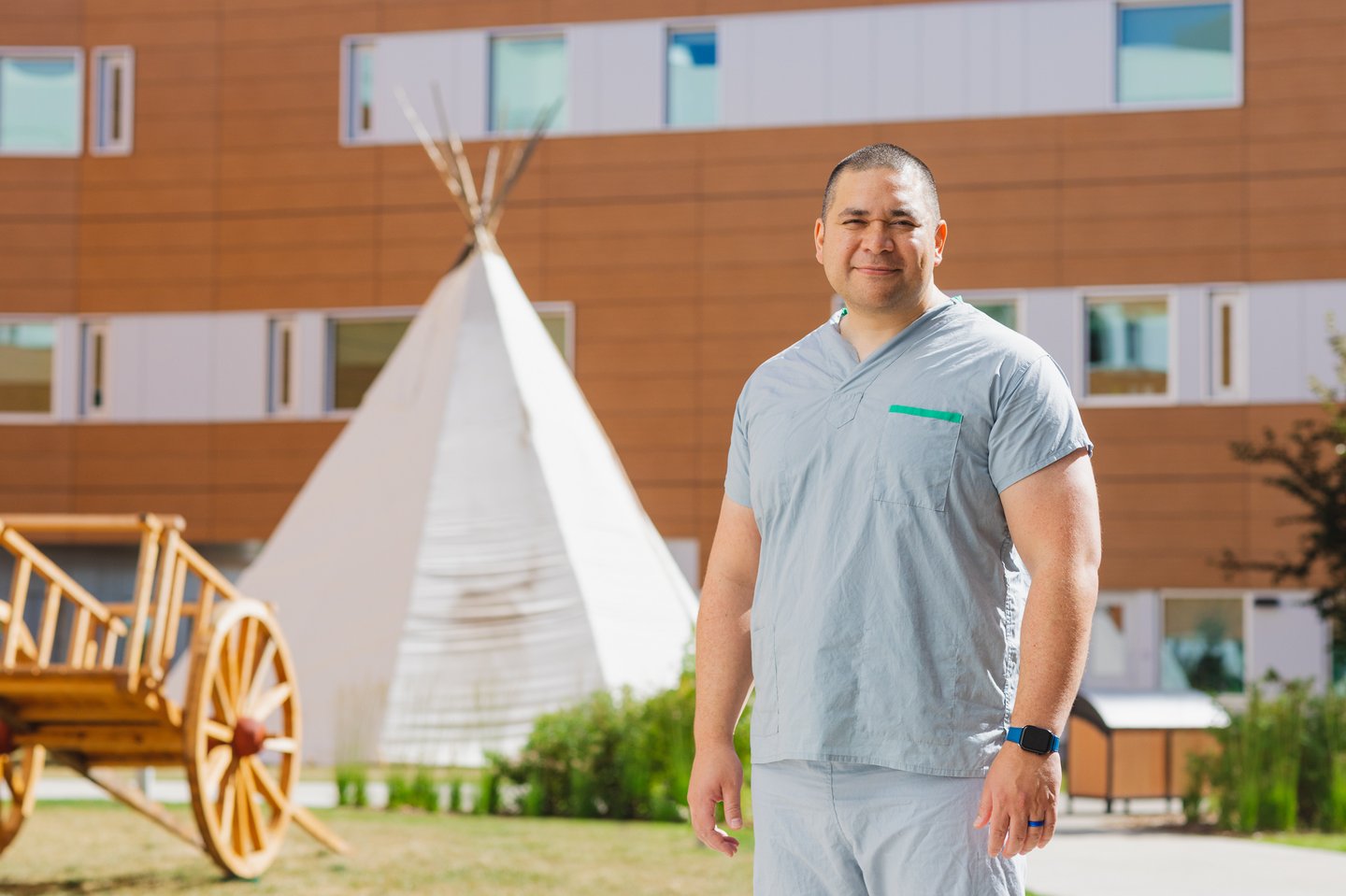Let’s not get complacent about reconciliation
Shortly after beginning clinical practice more a decade ago, I took on a role in the provincial Indigenous health program travelling around Alberta presenting on cultural competency.
The Truth and Reconciliation Commission had not yet broken the shared historical amnesia Canadians had about residential schools, and the language of anti-racism and decolonization had yet to become common in the places physicians trained, taught and provided care.
Although it was wonderful to get to know physician leaders and colleagues, there were times when the presentations could get very unpleasant. Strong resistance to acknowledging the impact of bias, discrimination, and racism was common. Attendees would be more focused on how the presentations made them feel versus the impact it could have on their patients. A lot of thought went into curating these learnings, finding ways to blunt what was naturally a very sharp conversation. It's a human experience to only tolerate so much discomfort before dissociating from a conversation.
As I prepared my children’s orange shirts earlier this week, I couldn’t help but reflect on what a different world this conversation now lives in. Reconciliation has moved from a sun that’s just a sliver over the horizon, to now rising high in the sky at midday. Through the hard work of Indigenous and non-Indigenous folks working together, it’s now broadly accepted that historical and contemporary anti-Indigenous harm have direct and intergenerational impacts on individuals, families, and communities. Trauma-informed care is much more common. More health providers than ever have been obliged or sought out education related to anti-Indigenous racism and reconciliation. And while health and social infrastructure—a more pragmatic way to discuss the Social Determinants of Health in my opinion—has a long way to go, we have made meaningful progress. I don’t think my children can remember a time when commemorating Truth and Reconciliation was not normal.
Normalization can be a double-edged sword, however. While it's heartening to see conversations around reconciliation become mainstream, I can see growing complacency. Conversations about the seven-year process to document the experiences of 6,500 people by the Truth and Reconciliation Commission to preserve records of human rights abuses, promote learning, honor Survivors, and encourage reconciliation and healing based on truth-telling don’t happen as often as they used to. I worry these memories are waning in the minds of many. A focus on the 94 Calls to Action in the TRC’s final report summarize the means, but they can also obscure the why; that there were real people—people whom we knew, lived with and cared for—who had experienced the horrors of residential schools who were searching for healing. Those people, notwithstanding the pain they were going through, came together and launched legal action against the Canadian government in the largest-class action in Canadian history. They won. And they forced this conversation because they refused to be forgotten. Anchoring ourselves in that history positions us in a very different mindset.
This National Day for Truth and Reconciliation, I encourage you to spend time rediscovering those stories. Find the thread that ties together the marches and commemorations that bring us together with the struggles residential school survivors experienced alone, as they built the reconciliation foundation we now stand on. Go back even further to the Royal Commission on Aboriginal Peoples, which also explored Canada’s history with Indigenous Peoples. The political will for RCAP was consolidated due to the Oka crisis, in much the same way the residential school settlement agreement consolidated (and forced) political will towards the TRC.
The journey towards reconciliation and justice is a long and challenging one, laden with uncomfortable truths and difficult conversations. Embracing the essence of remembrance on days like the National Day for Truth and Reconciliation and Orange Shirt Day isn’t just about being in the moment; it’s about looking back to experience again the moments that led us to this point. Through the act of remembering, we not only honor the resilience and strength of those who have faced immense hardship but also recognize the collective responsibility we all share in the pursuit of a more just and equitable society. It is easy to forget the painful stories and struggles that have brought us to this point when they fade from our everyday conversations.
The Truth and Reconciliation Commission's monumental effort to document the experiences of thousands of individuals, the Royal Commission on Aboriginal Peoples' exploration of Canada's history with Indigenous Peoples, and the pivotal moments like the Settlement Agreement and Oka crisis that consolidated political will—all serve as reminders of the profound commitment it takes to advance reconciliation.
To truly anchor ourselves in the history of reconciliation is to understand that it is an ongoing journey. It is a commitment to continuous learning, growth, and solidarity with Indigenous communities. It is about standing up against injustice and advocating for positive change. It is acknowledging that the stories of those who have suffered should never be forgotten.
This National Day for Truth and Reconciliation and every day, let us rekindle our connection to the stories that have brought us here. Let us honor the Survivors, the advocates, and the countless individuals who have pushed for change. Reconciliation is not an end state, it is an ongoing effort to set aside space for participation, empathy, and meaningful engagement.
As we wear our orange shirts and participate in commemorations this weekend, may we keep the knowledge that we are part of a collective journey towards healing, understanding, and justice.
Dr. Alika Lafontaine is the most recent past-president of the Canadian Medical Association.

